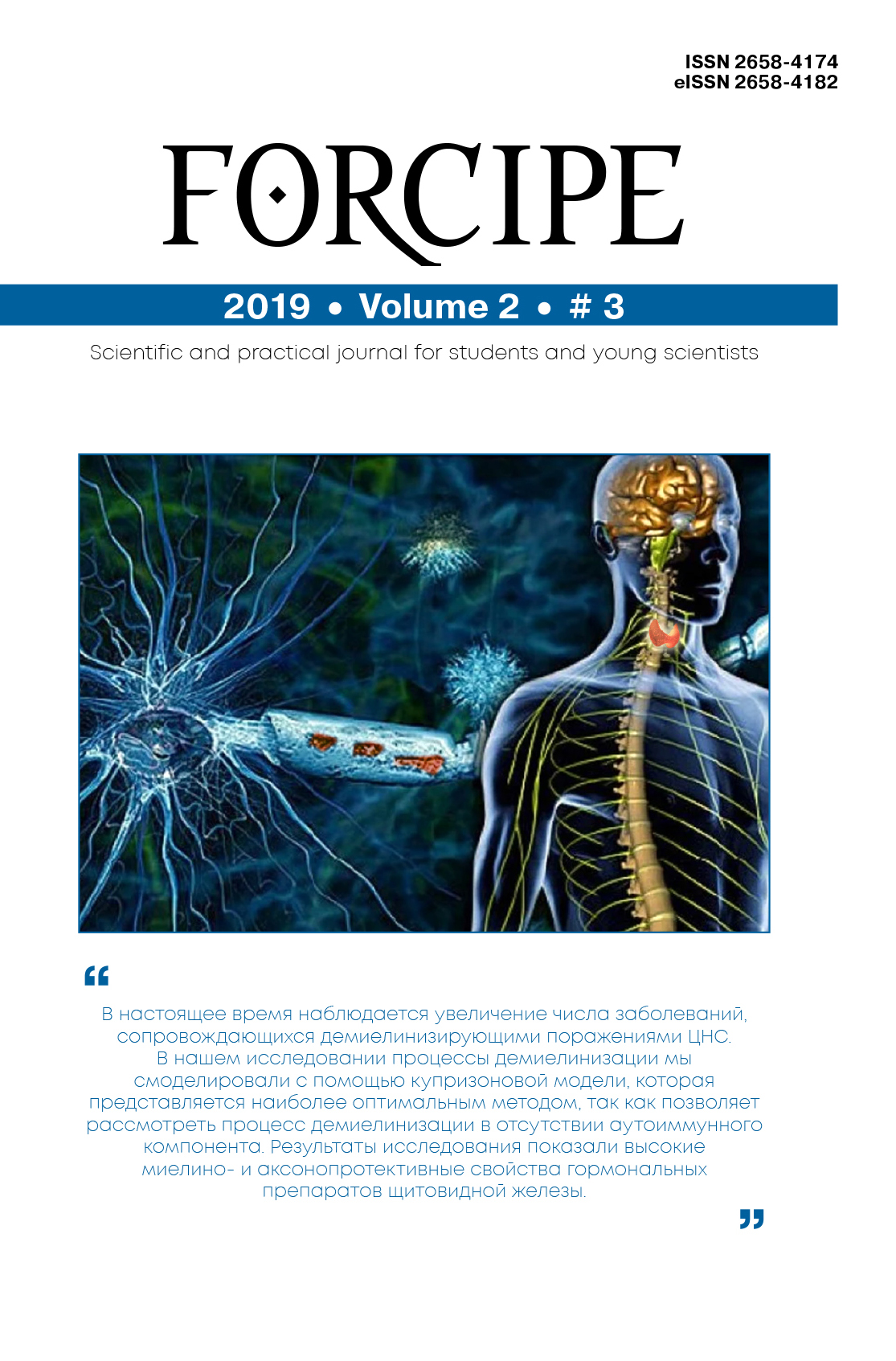PYRROLOQUINOLINE QUINONE: PHARMACOLOGICAL ASPECTS OF POSSIBLE USE AS A MEDICINAL PRODUCT
Abstract
Pyrroloquinoline quinone (PQQ) is a water soluble triglyceride quinone, widely distributed in the tissues of plants and animals. It has been established that PQQ is able to remain stable up to 20,000 redox cycles, which leads to its strongest antioxidant properties, with different efficiencies of vitamins C and polyphenols. PQQ prevents the development of oxidative stress, which causes DNA from a virus that inhibits cell aging and its associated secretory phenotype (SASP). It is proved that pyrroloquinoline quinone is an important and necessary component in the diet of pregnant women, both during lactation and in the neonatal period. This is due to the fact that PQQ increases placental fetal blood flow, contributing to the active intake of nutrients to the fetus. In addition, pyrroloquinoline quinone acts as a potential growth factor, stimulating the activation of the key enzyme proliferation and cell survival - ERK 1/2 kinase. The antidiabetic effect of PQQ, which is carried out by increasing the mitochondrial biogenesis and inhibition of the insulin protein phosphatase resistance enzyme PTP1B, is relevant. Also described are the hepatoprotective properties of pyrroloquinoline quinone in non alcoholic fatty liver disease in infants and children and the positive therapeutic effects in the treatment of rheumatoid arthritis. Along with the above properties, the ability of pyrroloquinoline quinone to induce apoptosis of tumor cells through the activation of mitochondria dependent pathways that cause osmotic cell lysis and the release of apoptosis proteins is noted. At the same time, the antitumor effect of PQQ is affected by affecting cell proliferation by reducing cyclin dependent kinases, which stops cell division: cells are fixed in the G0/G1 phases.



